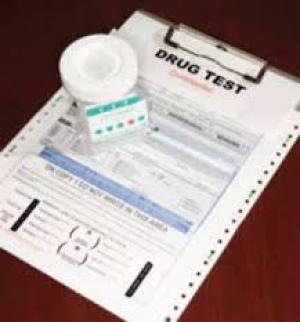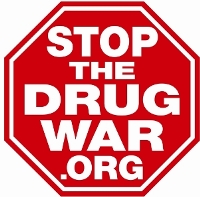StoptheDrugWar.org needs your support to help us stay on the move at a time of both opportunity and challenge in drug policy.
Victims/survivors of Duterte's extrajudicial drug war killings face continuing hardship and indignity. This event will explore challenges they face, efforts being made to help them, and how it affects the ICC Philippines case.
Oregon's experiment with drug decriminalization has been killed in its crib. All that is left is for the governor to perform the last rites.
Marijuana legalization and abortion rights are going to be on the Florida ballot in November. That could make the presidential race there more interesting, as well.
A quiet week on the medical marijuana front, but there was action in a couple of state capitals.
A New York judge threw a scare into the state's marijuana industry but all is better now, Vancouver activist Dana Larsen opens another drug-checking operation, and more.
A New York bill to require informed consent before drug testing pregnant women hits a roadblock, Australia's New South Wales gets its first drug checking pilot program, and more.
Virginia Gov. Glenn Youngkin signs a bill protecting medical marijuana-using state and local government employees, GOP senator demands Border Patrol step back from easing restrictions on past marijuana use among new hires, and more.
A poll of marijuana consumers offers some hints about who they will vote for in November, a group of US senators condemns Russia for holding a Pennsylvania medical marijuana user prisoner, and more.
Maine lawmakers reject a xenophobic effort to crack down on illicit pot grows, District of Columbia lawmakers reject an effort to tighten location restrictions on dispensaries, and more.
Customs and Border Patrol announces a new fentanyl crackdown, Sen. Cory Booker (D-NJ) and others file the SEEK HELP to protect people administering naloxone, and more.
Dear reader,

David Borden
This is a good time and a challenging time in drug policy:
- Changes in society affecting crime rates, have led to pushback against sentencing and police reform and drug decrim.
- The opioid crisis and its tragic toll have led to more official support for harm reduction than ever before, but also to some regressive policies.
- Marijuana efforts have momentum at the state level, but continue to stall federally amidst national politics and contention within the reform movement over issues like banking and rescheduling.
- The necessary debate on regulating drugs to reduce overdoses and other harm has yet to take off for most drugs.
We are a steady voice on these and other issues. But we need your help to stay on the move at this important time. Can you make a generous donation for our work at this time? Visit https://stopthedrugwar.org/donate, and click on the tax-deductible donation link or the non-deductible donation link, whichever kind you wish to make. Our donation form accepts credit card, PayPal, and bank ACH.
We especially need help with non-deductible donations to our 501(c)(4) nonprofit. Because our newsletter reports on political candidates, at most times we cover the substantial cost of our web site server and email list service fully with non-deductible funds. This is to protect our tax-deductible 501(c)(3) nonprofit, which can't afford to be implicated, rightly or wrongly, in candidate advocacy. Most of our current funding is of the tax-deductible kind, especially the larger grants and gifts.
(Speaking of our web site, check out our new design!)
Can you make a non-deductible donation to sustain our newsletter through the campaign season? Or a tax-deductible donation for our educational writing and our efforts to address serious human rights abuses in the drug war? Visit our Candidates topic page and our Rule of Law campaign page to see why these are important. Our web site supports both one-time donations and recurring ones, on cycles including monthly, quarterly, annually, and other options.
Donations can also be sent by mail. For a non-deductible donation, make your check payable to Drug Reform Coordination Network, and send to P.O. Box 9853, Washington, DC 20016. Tax-deductible donation checks should be payable to DRCNet Foundation, same address.
Visit https://stopthedrugwar.org/about#donations for information on other donation options like stock shares, or to read more about our work. Also visit https://stopthedrugwar.org/global and https://stopthedrugwar.org/rule of law for more about what we're doing.
Thank you for your support!
Sincerely,

David Borden
StoptheDrugWar.org
Washington, DC
"US and UN Drug Policy Reform"
https://stopthedrugwar.org
back to top
Please join us online for:
Victims Move Forward from the Philippine Drug War
online event presented by Program Paghilom, StoptheDrugWar.org, and the International Center for Multigenerational Legacies of Trauma
Monday April 15, 9:00pm ET | Tuesday April 16, 9:00am PHT
Zoom registration: https://bit.ly/victimsmoveforward
As Mayor of Davao City and then President of the Philippines, Rodrigo Duterte orchestrated a campaign of widespread extrajudicial killings in the Philippine drug war. Now the subject of an investigation by the International Criminal Court, the Duterte drug war according to the government has claimed more than 6,000 lives, while NGOs believe the true number is upwards of 30,000. Since late during the Duterte presidency and continuing under President Ferdinand Marcos Jr., drug war killings reported by media outlets in the Philippines have continued at a rate of about one per day.
Adding to the the suffering of victims/survivors, burial plots rented by the government have expiration dates, leading to cremations when families can't pay or sometimes without their knowledge. In addition to the indignity, this is also a potential evidentiary issue for the ICC. The AJ Kalinga Foundation's Program Paghilom helps families make arrangements for their loved ones' remains, with ritual to provide closure, and conducts forensic examinations, as part of a support framework that includes education, legal support and other basic needs.
Speakers:
Fr. Flaviano Villanueva SVD is a leading human rights advocate in the Philippines. He will discuss the work of Program Paghilom, including its efforts to document and memorialize extrajudicial killings in the Duterte drug war while helping victims/survivors move forward with their lives.
Dr. Yael Danieli, a clinical psychologist, psychohistorian, victimologist and traumatologist, will discuss the challenges faced by victims/survivors of atrocities, the role of victims in relation to cases at the International Criminal Court, and the concept of reparative justice in international law. She will also discuss the impact that trauma from mass atrocities has on future generations, a phenomenon recognized by the ICC for the first time in the Uganda Dominic Ongwen prosecution.
Gang Badoy Capati is the founder of Rock Ed Philippines and Project: Steady Asia, and is a trauma therapist and trained media literacy instructor with a background in media, documentary filmmaking, education and publishing. She will discuss victims' trauma in the context of events and conditions in The Philippines.
For further event info or assistance, email [email protected] or call +1 202-236-8620. For more information about StoptheDrugWar.org's international programs, visit https://stopthedrugwar.org/global and https://stopthedrugwar.org/philippines. Visit Program Paghilom at https://ajkalingafoundation.org/program-paghilom and ICMGLT at https://icmglt.org. Visit Project: STEADY Asia at https://projectsteadyasia.org.
back to top
With a final vote in the state Senate on Friday, Oregon lawmakers have passed a measure, House Bill 4002, that makes small-time drug possession a misdemeanor. If signed into law by Gov. Tina Kotek (D) as expected, the move would undo the decriminalization of drug possession that was approved by voters as part of Measure 110 in 2020 but would leave intact the increased spending for drug treatment, harm reduction and recovery services.

The streets in Portland are going to get a little meaner once police can go back to arresting drug users. (Creative Commons)
The groundbreaking decision to decriminalize drug possession fell victim to bad timing, scapegoating, and the slow implementation of its treatment and recovery components. Voters approved it just as fentanyl was replacing heroin in the Pacific Northwest, leading to a large spike in fatal overdoses for which decriminalization was wrongfully blamed, and amid the disruptions and social isolation caused by the arrival of the coronavirus pandemic in early 2020.
While foes of decriminalization blamed it for a three-fold jump in overdose deaths between 2019 and 2022, researchers who examined the data came to a different conclusion. In a peer-reviewed article published online in JAMA Psychiatry, they found "that in Oregon and Washington, two states that implemented drug decriminalization policies in early 2021, there is no evidence of an association between decriminalization and fatal drug overdose rates."
"Our analysis suggests that state decriminalization policies do not lead to increases in overdose deaths," Corey Davis, JD, MSPH, adjunct assistant professor in the Department of Population Health at NYU Grossman School of Medicine, a member of the Center for Opioid Epidemiology and Policy, and the study’s senior investigator said in a statement announcing the study's release.
In another study, researchers found that decriminalization dramatically reduced arrests for drug possession and didn't lead to more arrests for violent crime. "These two studies show that drug decriminalization measures in Oregon and Washington reduced arrests and did not increase overdose deaths. Taken together, these findings signal reduced harm to people who use drugs and possibly their communities as well," said Davis.
Yet another study had the hard numbers on the reduction in drug arrests. That study found that drug arrests averaged around 1200 a month before Measure 110, dropped to around 600 a month amidst the pandemic, then plummeted to around 200 a month once Measure 110 was in place. That is a roughly 85 percent reduction in drug arrests -- and that is nothing to sneeze at.
Foes of decriminalization also blamed it for contributing to public drug use and Portland's homelessness problem. But that critique is wrongheaded, or at least not clear: Public drug use is most directly a function of homelessness, and homelessness is a function of a tight housing market and high rents.
Still, Oregon lawmakers were proud of getting the Oregon Drug Intervention Plan, as they referred to recriminalization, passed. "We must take action. The drug crisis is killing Oregonians and threatening the health and safety of our communities. The Oregon Drug Intervention Plan is a treatment-focused approach that gives providers and law enforcement the tolls to keep people safe and save lives," Senate Majority Leader Kate Lieber (D-Beaverton), co-chair of the Joint Committee on Addiction and Community Safety Response, said in a statement following the final Senate vote.
While the bill recriminalizes drug possession, its "deflection plan" is aimed at keeping people out of jail. With deflection, once someone is cited or arrested for drug possession, if an officer makes a direct referral to a treatment option and treatment is completed, no charges are filed and there is no criminal record. For other drug arrestees, a conditional discharge must be offered if they agree to and complete treatment. If they go to court and plead or are found guilty, they must be sentenced to probation, given a connection to treatment, and their record expunged if treatment is completed. If they violate probation, they could face up to 30 days of treatment or jail, and if probation is revoked, they could face six months in jail.
But decriminalization and treatment community advocates were not happy.
"After fentanyl landed in Oregon and overdoses started rising in 2020, voters called for a public health approach that would expand treatment and require strong leadership at the state to bring law enforcement and providers together to implement that vision," said Tera Hurst, Executive Director of the Health Justice Recovery Alliance (HJRA). "Instead, service funding was delayed, the citation system was never set up, providers and law enforcement were sidelined, and overdoses continued to rise."
"Two wrongs don’t make a right," said Hurst. "The public health approach of expanding treatment without punishment was the right approach, but HB 4002 doubles down on the same mistakes the state made in implementing Measure 110. Unfortunately, it will be people struggling with addiction -- especially those living outside and Black and brown Oregonians -- who will pay the biggest price. And our communities will be no safer for it."
Still, advocates and activists will continue to try to make the best of the situation, she said.
"HJRA is committed to working with the state, service providers, counties, and police departments to ensure that implementation of HB 4002 does the most good with the least harm," said Hurst. "We must not lose sight of our shared goal to create a system of care that works for everyone, is available on-demand, and ensures that communities most impacted by drug war policies are given the resources to heal."
The Drug Policy Alliance (DPA), which had spent millions helping Measure 110 win back in 2020, was more scathing in response to lawmakers' actions. The bill "doubles down on the failed approach of arresting and jailing people for drug possession," the group said in a press release after the final vote. DPA also qualified it as "a disappointing setback" and "a false bill of goods" because "people struggling with drug use will go to jail and not get treatment."
"Today, politicians blamed an innovative policy in its infancy for decades of their own ineffectiveness," said DPA executive director Kassandra Frederique. "The fact is that drug decriminalization worked to reduce the harms of criminalization. It is Oregon leaders that didn't work. Their chronic underfunding of affordable housing, effective addiction services, and accessible health care are to blame for the heartbreaking public suffering seen in Oregon’s streets. And there is not a shred of evidence supporting claims that Measure 110 increased homelessness, overdose, or crime rates. Recriminalizing drugs is a false promise of change to distract from politicians' incompetence as they approach reelection."
If, as expected, Gov. Kotek signs the bill into law, it will indeed be a disappointing setback for the cause of drug reform, but the drug reform movement is accustomed to disappointing setbacks. It just gears up for the next battle.
back to top
Residents of the nation's third most populous state will have the chance to legalize marijuana in November after the state Supreme Court on Monday dismissed a last shot at blocking it by Republican state Attorney General Ashley Moody. That clears the way for the Adult Personal Use of Marijuana constitutional amendment to appear on the ballot.

Miami Beach. Will weed be legal here soon? (Pixabay)
The amendment would allow people 21 and over older "to possess, purchase, or use marijuana products and marijuana accessories for non-medical personal consumption by smoking, ingestion, or otherwise," and it would permit medical marijuana treatment centers and other state licensed entities "to acquire, cultivate, process, manufacture, sell, and distribute such products and accessories."
It sets a personal possession limit of three ounces and five grams of concentrates but has no provision for home cultivation or expungement.
It is sponsored by Smart and Safe Florida and bankrolled to the tune of $40 million by medical marijuana operator Trulieve, which stands to benefit immensely from being able to turn its existing "Medical Marijuana Treatment Centers" into adult-use cash cows with legalization. The legislature would have the option of opening up retail sales to other licensees later.
In his advisory opinion, Justice Jamie Grosshans said the court would allow the amendment to go to the voters because it met requirements on subject matter and clarity.
"Our role is narrow -- we assess only whether the amendment conforms to the constitutionally mandated single-subject requirement, whether the ballot summary meets the statutory standard for clarity, and whether the amendment is facially invalid under the federal constitution," wrote Grosshans, an appointee of Gov. Ron DeSantis (R), who opposes legalization. "In light of those limited considerations, we approve the proposed amendment for placement on the ballot."
The amendment will need to win 60 percent of the vote to be approved. Florida is the only one of the 24 initiative states that imposes that high bar for passage.
Activists and interested parties alike welcomed the ruling.
"We are thankful that the Court has correctly ruled the ballot initiative and summary language meets the standards for single subject and clarity. We look forward to supporting this campaign as it heads to the ballot this Fall," said Trulieve CEO Kim Rivers in a press release greeting the decision.
"Trulieve was the primary financial supporter of the initiative during the signature gathering effort and subsequent court challenge and is a proud supporter, alongside a strong coalition of other companies, of the next important phase to educate Floridians on the amendment and secure a yes vote on Amendment 3 this November," Rivers added.
"We are pleased that the Court agreed that the ballot language was clear and correctly ruled in favor of allowing voters the chance to vote on this important initiative," Smart and Safe Florida said in a statement.
"This is one of the most important cannabis legalization campaigns in recent years," said Matthew Schweich, executive director of the Marijuana Policy Project in a statement emailed to supporters. "We have the opportunity to end the injustice of cannabis prohibition for over 22 million Americans.
"The challenge in Florida is reaching the 60 percent mark,” added Schweich. "We need a well-funded campaign but just as importantly we need a strong grassroots operation that can mobilize support and turn out pro-legalization voters."
The same day the state Supreme Court gave the marijuana initiative the go-ahead, it also approved an abortion rights initiative. Those are two solid reasons for progressives to get to the polls in November, which could make the presidential race in the Sunshine State just a little more interesting, as well.
back to top
A quiet week on the medical marijuana front, but there was action in a couple of state capitals.
DelawareDelaware Lawmakers Send Medical Marijuana Expansion Bill to Governor. After a final floor vote in the Senate, lawmakers have sent a medical marijuana expansion bill, House Bill 285, to the desk of Gov. John Carney (D).
The bill would allow doctors to issue medical marijuana recommendations to any patient who could benefit from it whether or not they suffer from a state-specified qualifying condition. It would also allow people 65 and older to self-certify for medical marijuana without a doctor's recommendation.
"These changes will allow healthcare providers to make sound decisions about which treatments best fit their patients, and make those treatments more readily accessible to people who need them the most," said bill sponsor Sen. Kyra Hoffner (D).
Kansas
Kansas Lawmakers Kill Medical Marijuana Pilot Program. The Senate Federal and State Affairs Committee moved on a voice vote to table until next January a bill that would have set up a pilot program for medical marijuana, Senate Bill 555. The vote effectively kills the bill for this session.
After several years of failed attempts to pass a standard medical marijuana bill, backers hoped they could at least get the pilot program passed, but even that was too much for the rock-ribbed Republicans of the Sunflower State.
"Our goal is to provide relief for patients, while also balancing the concerns of legislators and conservative Kansans," Sam Jones, COO of Kansas Natural Remedies, which helped draft the legislation, said during a January hearing."By being one of the last states to implement this, I think we've learned from other states," he said. "We’ve tailored this bill to address the things that other states have gotten wrong and to address the things that they may have gotten right. This is a limited bill. This is supposed to be a pilot program. This is a proof of concept for medical cannabis to give proof that medical cannabis isn’t going to cause the end of society."
But the usual suspects opposed any move toward medical marijuana: "I'm very concerned by some of the trends and the data that we’ve seen as we look around the country at other states that have legalized," said Kansas Bureau of Investigation (KBI) Director Tony Mattivi, arguing that state-level reform is associated with increased rates of opioid overdoses. He also claimed that allowing the pilot program would open the door to organized crime.
back to top
A New York judge threw a scare into the state's marijuana industry but all is better now, Vancouver activist Dana Larsen opens another drug-checking operation, and more.

Iran executed nearly 500 drug offenders last year, Amnesty International reports. (Handsoffcain.org)
Florida Governor Warns "Radical" Marijuana Legalization Initiative Will Leave State "Smelling Like Marijuana." Displaying much of the same political acumen that left him an early also-ran in the Republican presidential race, Gov. Ran DeSantis (R) has come out against a constitutional amendment to legalize marijuana that has just been cleared for the November ballot.
The measure is "radical" and will "reduce the quality of life" in the state, he warned at a Thursday press conference. The initiative is "basically a license to have it anywhere you want" and its passage would mean "this state will start to smell like marijuana in our cities and towns."
The odor of weed is a big issue for DeSantis, who has complained about the smell of it in other jurisdictions.
The state already has medical marijuana and that should be enough, he argued.
"Do we really need to do more with that?" he asked. "Do we want to have more marijuana in our communities? I don’t think it’ll work out well, but it is a very, very broad amendment."
Under the proposed initiative, people 21 and over could purchase and possess up to three ounces of weed, which would initially be sold only by companies that are already in the existing medical marijuana marketplace, such as Trulieve, which has already funded the effort to the tune of tens of millions of dollars. There is no provision for home cultivation.
New York Judge Freaks Out Marijuana Industry with Regulatory Ruling That Was Amended the Next Day. State Supreme Court Justice Kevin Bryant on Wednesday issued an opinion that appeared to throw out the state's regulatory regime for legal marijuana sales as "unconstitutionally vague," causing great concern within the industry. But the next day, after an uproar ensued, he amended the order to clarify that it only applied to marketing and advertising rules -- not the entire regulatory structure.
The ruling came in a case brought by Leafly, a marijuana sales website, which had taken the state to court over its rules barring dispensaries from advertising on third-party platforms like it.
Leafly said it was happy with even the limited decision: "It's impossible to overstate the importance of providing consumers with choices, and educational information when making purchasing decisions," the company said in a statement. "It is critically important that licensed retailers have equal access to important advertising and marketing tools to help them succeed in a competitive landscape."
International
Vancouver Activist Dana Larsen Opens New Drug Checking Site. Veteran drug reform activist Dana Larsen has opened a second site for people to get their drugs checked for potency and contaminants. The Get Your Drugs Tested service opened on West Broadway in downtown Vancouver will provide checking for free and is legally approved to operate by the Vancouver Coastal Health Authority, Larsen said.
"We'll test anything people bring in, any kind of substance. That can be anything from heroin, cocaine to other substances. We test psychedelics like MDMA, any street drug or pill, we can analyze it and give you a very good idea of what's in there and make an informed decision on what you’re taking," said Larsen at the grand opening event.
Larsen is not the only one offering such services. The British Columbia Ministry of Health and Addictions says there are 90 drug-checking services across the province and "46 of these offer immediate point-of-care testing with FTIR spectrometer on some days of the week."
"Lifesaving supports such as drug checking, overdose prevention services, and providing harm reduction supplies keep people alive so they can access health care and treatment," reads a statement from the ministry. "People need to be alive to get help. Drug checking is a harm reduction service aimed at keeping people alive -- to help reduce the risk of overdose or poisoning from the toxic street drugs being pushed on people by organized crime."
Iran Executed Hundreds of Drug Offenders Last Year, Amnesty International Says. In a report released Thursday, the human rights group Amnesty International said Iran had executed at least 853 people in 2023, the highest number in years, and that 481 of them -- or more than half -- were for drug offenses.
"Amid domestic calls for the abolition of the death penalty, including from death row prisoners, the Iranian authorities have doubled down and persisted with their state-sanctioned killing spree which has turned prisons into killing fields," read the investigative report titled "'Don't Let Them Kill Us': Iran's Relentless Execution Crisis Since The 2022 Uprising."
The number of overall executions has risen dramatically since a nationwide uprising began after the death in police custody of Mahsa Amini for not wearing a head covering. The number of drug executions has also risen dramatically since the Islamic Republic moved in 2017 to amend its death penalty procedures and reduce the number of drug executions.
"The execution crisis in Iran both stems from and exacerbates a wider crisis of systemic impunity for the arbitrary deprivation of life. Security forces, prosecutors, and judges collaborate in a relentless assault on the right to life," the report said.
"Our shocking findings on the Iranian authorities’ ongoing assault on the right to life underscore the urgent need for the international community to press the Iranian authorities for an immediate moratorium on all executions," said Diana Eltahawy, Deputy Regional Director for the Middle East and North Africa at Amnesty International, further calling for the renewal of the mandates of the UN Fact Finding Mission on Iran and the UN Special Rapporteur on Iran.
back to top
A New York bill to require informed consent before drug testing pregnant women hits a roadblock, Australia's New South Wales gets its first drug checking pilot program, and more.

A New York bill to require informed consent before drug testing pregnant women gets some opposition. (Creative Commons)
New York Bill to Require Informed Consent Before Drug Testing Pregnant Women Hits Roadblock. A bill that would require doctors and hospitals to obtain informed consent from pregnant patients before subjecting them to drug testing, A00109, has hit a roadblock on its way to an Assembly floor vote. The measure passed the Assembly Rules Committee and Codes Committee earlier this year, but a floor vote set for last week didn't happen after a tense debate among members led to the bill being tabled.
The bill is still alive until the session ends on June 6 and Assembly Majority Leader Crystal Peoples-Stokes (D-Buffalo) said she thinks "the bill passes at some point," likely after tightening the legislation’s language to make its intent clearer.
The bill is supposed to bolster trust between pregnant women and their healthcare providers, but the debate last week grew contentious around the role of Child Protective Services and the impact of the legislation on newborns.
"A trusting relationship is required between patient and provider in order to get good health care, and it’s one of the reasons why we see such disparity in the way health care is delivered, because there is not that trust," Peoples-Stokes said Friday. "And we've got to get to that. I think the legislation is good. It just needs to be tweaked."
Oft-cited in the debate was a story published in the Buffalo News about a mother tested without her consent whose test results came back positive for opiates because, she said, she ate bagels with poppy seeds. She was under investigation by Child Protective Services for two months before the report of suspected child abuse was deemed unfounded.
"We want to avoid situations like this," said Assembly Member Linda B. Rosenthal (D-Manhattan), who is sponsoring the informed consent bill. Rosenthal also said a test done without informed consent "totally breaks the trust" between the patient and their health care provider.
But conservative Republicans such as Assembly Member Mary Beth Walsh (R-Schenectady) accused members of "vilifying an agency that’s been created in our state to help." She questioned why the Assembly would create what she called "a barrier" that would hinder Child Protective Services from doing their job, though she agreed with Rosenthal that a positive drug test should not solely establish abuse or neglect.
"Why wouldn't we want to know if a pregnant woman or if a newborn baby had illegal drugs in their system, or alcohol?" Walsh asked Rosenthal.
After clarifying that cannabis is now legal, Rosenthal said, "That is a decision that is up to the individual who is pregnant."
Walsh fired back: "So society has no interest in determining whether or not a mother who is pregnant with a baby has got drugs in her system?"
"Society may have an interest," Rosenthal replied, "but it is up to the individual whether they want to be tested."
The bill will require further effort to get it passed, said Jenna Lauter, policy counsel at the New York Civil Liberties Union. "I think it's clear that we need to continue to educate lawmakers and the public about the fact that substance use is a health issue, and it needs to be met with compassion, dignity and is best addressed through a trusting and open relationship with their health care provider," Lauter said.
Harm Reduction
Colorado House Passes Safe Injection Site Bill. The House last Friday gave final approval to a bill to create safe injection sites in the state, House Bill 24-1028. It passed a similar measure last year, only to see it die in the Senate.
The bill would let municipalities across the state open safe injection sites staffed by healthcare professionals where drug users can test and ingest their drugs.
"It stalled for a few years. Last year it made it through the House, there was a Senate issue and a governor issue. This year, we are hoping it makes it through the House, and we're hoping it makes it through the Senate. We want to get it to the governor’s desk," said Lisa Raville, executive director of the Harm Reduction Action Center. "We will never treat or incarcerate our way out of an unregulated drug supply, ever. This is the worst overdose crisis we’ve ever been in, and quite frankly, it's a prohibition crisis."
To become law, the bill will not only have to get through the Senate; it will have to be approved by Gov. Jared Polis (D), and his office shows no interest in doing so.
"The Governor has stated he is opposed to this approach and believes this is not a constructive way to address substance abuse. The Governor is supportive of increasing access to treatment options for Coloradans, including funding for more capital construction to increase the number of beds available," his office said.
International
Australia's New South Wales Gets Its First Drug Checking Pilot Program. Drug checking is coming to Sydney, with a first pilot program at the Kings Cross safe injection site (Medically Supervised Injecting Center) opening today. The pill testing program will run one day a week for about four months at the site.
Participants in the program must already be registered with the safe injection site. They can provide a small quantity of their drugs for testing. They will then be given an analysis of their substance, which includes details of the mix of drugs present, the purity of the substance, plus targeted harm reduction advice.
MSIC medical director Marianne Jauncey said the pilot program will study the interest, feasibility, and efficacy of drug checking. "It will also improve monitoring of the street drug marketplace so that unexpected or highly dangerous substances may be identified earlier, ideally before people use them," Dr Jauncey said.
Denmark's Christiania Hippie Enclave Rips Up Pusher Street. The half-century-old hippie enclave of Christiania in Copenhagen long tolerated illicit weed and hash sales on its infamous Pusher Street, leading to clashes with authorities over the years, but with the advent of hard drug sales and violence among dealers, on Saturday, Christiania's residents literally tore up Pusher Street, pulling up its cobblestones brick by brick in a bid to end the social disruption.
"For more than 40 years, Christiania and the illegal sale of drugs out here has been a huge thorn in the side of the established society," said Danish justice minister Peter Hummelgaard, who was on the scene. "But now we have reached the point where the Christianians have also had enough of the [criminal] gangs."
Hulda Mader, who has lived in Christiania for 40 years, said: "We don't want the gangsters anymore." But the hash trade is another story. "There might be some people selling hashish afterward, but it's not going to be in the open," she added.
back to top
Virginia Gov. Glenn Youngkin signs a bill protecting medical marijuana-using state and local government employees, GOP senator demands Border Patrol step back from easing restrictions on past marijuana use among new hires, and more.

More truck drivers are just saying no to drug testing. (Creative Commons)
GOP Senator Demands Border Patrol Undo Hiring Policy Allowing for Recent Marijuana Use. Sen. James Lankford (R-OK) sent a letter Sunday to Customs and Border Patrol (CBP) demanding that the agency undo a recent change allowing the hiring of people who admitted to using marijuana more than 90 days before hiring. Prior to the policy change, CBP had enforced a rule requiring no marijuana use for the previous two years.
Claiming that the policy change "undermines the security and integrity of the Border Patrol workforce and flatly contradicts Border Patrol's mission to protect our nation against illegal drugs," Lankford demanded that CBP "restore the two-year lookback on marijuana usage among Border Patrol recruits."
Lankford accuses CBP of using the policy change to "incentivize additional recruits." CBP suffers from chronic understaffing.
Medical Marijuana
Virginia Governor Approves Bill Granting Employment Protections to State and Local Government Workers. Gov. Glenn Youngkin (R) has signed into law a pair of bills, Senate Bill 391 and House Bill 149 that expand the state's employment protections for medical marijuana patients to public employees. The new law takes effect July 1, 2024.
Current state law bars private employers from firing or discriminating against workers lawfully using medical marijuana but provides no such protection for state and local government workers.
Law enforcement officers are excluded from the protections.
Asset Forfeiture
Kansas Legislature Approves Asset Forfeiture Reform Bill. With a final Senate floor vote last Friday, lawmakers have approved legislation that will enact some asset forfeiture reforms, Senate Bill 458.
Among the bill's features: "Specifying that certain drug offenses do not give rise to forfeiture under the Kansas standard asset seizure and forfeiture act, requiring courts to make a finding that forfeiture is not excessive, restricting actions prior to commencement of forfeiture proceedings, requiring probable cause affidavit filing and review to commence proceedings, increasing the burden of proof required to forfeit property to clear and convincing evidence and authorizing courts to order payment of attorney fees and costs for certain claimants."
In a report released last year, the Americans for Prosperity Foundation-Kansas found that state law enforcement seized more than $25 million in cash and property. Most seizures did not "involve figures unrelated to organized crime, but a significant loss for the average person."
Gov. Laura Kelly (D) is expected to sign the bills.
Drug Testing
More Truck Drivers Refuse Drug Testing Even as Positive Drug Tests Fall. A new report from the Department of Transportation's Federal Motor Carrier Safety Administration (FMCSA) finds that the number of positive drug tests among commercial truck drivers decreased from nearly 58,000 in 2022 to just over 54,000 last year. But at the same time, the number of drivers who refused to be drug tested jumped a whopping 39 percent.
The record-high number of refusals comes as the industry is plagued by a shortage of drivers, which even some trade groups said has been exacerbated by the screening of drivers for marijuana, which risks punishing drivers who are not impaired on the job. (Marijuana testing detects metabolites that can remain in the system for days after short-term impairment has worn off.
Because the refusals are counted as failed drug tests, even though fewer positive test results were reported, the total number of drug violations by truckers rose -- to 68,229 in 2023 compared to 67,775 a year earlier.
"The overall rise in drug violations in 2023, even though there are fewer positive tests, is attributed to a nearly 40% increase in reported drug test refusals -- 9,214 in 2022 versus 12,804 in 2023," the Federal Motor Carrier Safety Administration (FMCSA) said. "Drug test refusals include employer-reported refusals like failing to show up for a random test, or leaving a test collection facility after a test has begun but before it's complete."
Marijuana was by far the most common drug detected, followed by cocaine (10,000 positive test results), meth (4,500), other amphetamines (4,200), and various prescription opioids (4,500). Marijuana positives actually decreased from 40,916 in 2022 to 37,657 last year.
back to top
A poll of marijuana consumers offers some hints about who they will vote for in November, a group of US senators condemns Russia for holding a Pennsylvania medical marijuana user prisoner, and more.

Senate Majority Leader Chuck Schumer (D-NY) is pushing to get a marijuana legalization bill filed this month. (Creative Commons)
New Poll Suggests Whom Marijuana Consumers Will Vote for in 2024 US Elections. A small sample poll of regular marijuana consumers conducted by the marijuana telemedicine company NuggMD suggests that pot smokers will vote for the presidential candidate who endorses pro-marijuana policies -- regardless of party.
The poll of 755 regular marijuana users found that 59 percent would vote for a pro-legalization presidential candidate regardless of party. Another 17 percent would vote for a pro-legalization candidate only if he were a Democrat, while 10 percent would vote for such a candidate only if he were a Republican. Only 14 percent said a candidate's marijuana stance would make no difference.
When it comes to actual candidates, respondents preferred President Biden over former President Trump by a margin of 43 percent to 36 percent. Similarly, 56 percent of respondents said the Democratic Party had better marijuana policies.
The majority of respondents were not one-issue marijuana voters, with only 6 percent saying marijuana is their sole issue, 47 percent saying it is one of many issues they are concerned with, and 38 percent saying marijuana policy is not a top priority in their voting decisions.
The poll sample is tiny compared to the number of marijuana users in the country, but it provides some hints on broader sentiments.
Schumer, Democrats Plan to File Marijuana Legalization Bill This Month.
Senate Majority Leader Chuck Schumer (D-NY), Senate Finance Committee Chairman Ron Wyden (D-OR), and Sen. Cory Booker (D-NJ) are beating the hustings to gain support for a marijuana legalization bill that they plan to file this month. As part of their effort, they gave senators until 4/20 to sign on as original cosponsors of the bill.
"The question today is not whether cannabis should be legal -- many states have already moved ahead. The question now is whether cannabis should be subject to the same high regulatory standards, based on preserving public health and safety, that apply to alcohol and tobacco," Schumer, Wyden, and Booker wrote to colleagues.
"Federal regulation is long overdue to ensure that cannabis products are as safe as possible, to prevent access by children and adults younger than 21, and to ensure that state and local jurisdictions have the resources they need to combat impaired driving," they continued. "Federal legislation is needed to ensure that the tens of thousands of people harmed by the failed War on Drugs, predominantly from communities of color, receive the justice they deserve after decades of over-criminalization. And the federal government must catch up with the states and recognize that the prohibition of cannabis has stymied research into the effects of cannabis, made it easier for the illicit market to thrive, and ensnared thousands of people arrested for simple cannabis possession in the criminal justice system."
Their forthcoming Cannabis Administration and Opportunity Act is the vehicle to do that, they said. The bill will be largely identical to the one they filed in 2022 and is set to be filed "by the end of April 2024."
Click on the title link for a long list of provisions in the bill.
Foreign Policy
US Senators Condemn Arrest of American Citizens in Russia, Including Man Doing 14 Years for Medical Marijuana. In a resolution marking the first anniversary of the arrest of Wall Street Journal reporter Evan Gershkovich, more than 20 senators led by Sen. Dick Durbin (D-IL) condemned the Russian government for arresting US citizens there including Pennsylvania medical marijuana patient Marc Fogel who is serving a a 14-year sentence over simple possession of marijuana.
"By introducing this resolution, we're yet again bringing to light the cruelty of the Russian government," Durbin, who also chairs the Senate Judiciary Committee, said Tuesday. "As fellow Americans, we demand the release of all American citizens who face arbitrary arrests by the Russian government."
In a floor Speech, Durbin said that Fogel's sentence for possessing legally prescribed medical marijuana was "ludicrous."
Fogel was "detained for carrying a small amount of medical marijuana, which was prescribed by his doctor," said Sen. John Fetterman (D-PA), who is a prime cosponsor of the resolution. "But Marc has now spent over a year of a 14-year sentence in a Russian prison because of a bogus 'large-scale drug trafficking' conviction. A 14-year sentence is absurd -- even by Russian standards," he said. "The bottom line is that Marc's punishment simply does not match the crime. We must bring Marc, and all other unjustly detained Americans, home."
The resolution notes that "the Government of the Russian Federation arrested United States citizen and international schoolteacher Marc Fogel for possession of medical marijuana prescribed by his physician, then sentenced him on June 16, 2022, to an excessive 14-year sentence in a Russian labor camp."
Other Americans are being held in Russia, and the resolution names them and demands their release. The resolution "condemns the arbitrary arrest and continued detention of United States citizens Evan Gershkovich, Paul Whelan, Alsu Kurmasheva, Marc Fogel, and Ksenia Khavana, and United States permanent resident Vladimir Kara-Murza by the Government of the Russian Federation."
The US government has not escalated Fogel's case by formally designating him as wrongfully detained. The resolution calls upon it to do so. Lawmakers point out that his situation is similar to that of Women's National Basketball Association star Brittney Griner, who also served time in Russia after being found in possession of medicinal cannabis oil. Her case became a cause célèbre while Fogel has languished in relative obscurity.
back to top
Maine lawmakers reject a xenophobic effort to crack down on illicit pot grows, District of Columbia lawmakers reject an effort to tighten location restrictions on dispensaries, and more.

The psilocbyin molecule. Maine lawmakers have passed a bill to study how to regulate it. (Creative Commons)
Poll: Most Americans Say That Adults Should Be Able to Legally Grow Marijuana at Home. A poll of US adults conducted by Harris Polling for European marijuana company Royal Queen Seeds finds that 62 percent of respondents think they should be able to legally grow their own weed. Among marijuana users, that figure was 81 percent.
Twenty-four states have legalized marijuana and 21 of them allow home cultivation.
Homegrown marijuana provides consumers with a cheaper alternative to the commercial market, as well as allowing them to control the production of the crop they will consume.
Maine Bill Targeting Foreign-Owned Illegal Marijuana Grows Dies. A bill touted as going after illegal Chinese marijuana grows, LD 2204, died after a motion in the Senate Wednesday afternoon. The measure would have created a new offense of racketeering to go after alleged grow conspiracies, but it also included a ban on land ownership in the state by some foreign nationals and would have encouraged power companies to report changes in usage to law enforcement.
Sponsored by Rep. John Andrews (R-South Paris), the bill had support largely from Republican lawmakers, but other legislators denounced it as racist and unconstitutional.
Andrews said there is a "vast network of criminal conspiracies that need RICO laws to round up the gangsters at the top."
But in addition to creating the state racketeering charge, the bill would also have barred citizens from China, Cuba, Iran, North Korea, or Russia from buying real estate in Maine without becoming permanent residents. That provision sparked harsh criticism.
"I'm concerned because this bill is discriminatory," Rep. Suzanne Salisbury (D-Westbrook) said. "Illegal marijuana grows in Maine are a problem. They are being addressed. This bill is not the way to further investigate those," she added.
"This is really xenophobic, and it's not tied to their conduct, just what countries they come from," ACLU of Maine Policy Director Meagan Sway said. "It's been found unconstitutional in other states. The ACLU of Florida sued about a very similar law and won," Sway said.
A House vote Tuesday signaled that the bill would not move forward, and the Senate vote Wednesday sealed the deal. That prompted Republicans to play the Red Scare card.
"That we could have addressed yesterday on the state level, but unfortunately, House Democrats again sided with the Chinese communists over Maine people," Andrews said.
Pennsylvania Marijuana Legalization Bill Filed. With the House Health Subcommittee on Health Care set to hold a hearing Friday on marijuana legalization, Rep. Amen Brown (D) has filed a marijuana legalization bill he says is "grounded in safety and social equity."
The measure is House Bill 2210. It would legalize the purchase, possession, and gifting of up to 30 grams by people 21 and over, but would limit home cultivation to medical marijuana patients, who could grow up to five plants. Retail sales would be taxed at eight percent with an additional five percent excise tax. There would be automatic expungement of past marijuana convictions and there are social equity provisions within the bill. A companion measure was introduced in the Senate last year.
The bill "addresses safety by setting the minimum marijuana consumption age at 21 years old and provides the appropriate deterrence to keep marijuana out of the hands of anyone under 21," Brown said in a cosponsorship memo circulated to his colleagues. "It provides law enforcement the means to adjudicate driving under the influence and the authority to pursue and eradicate any illicit market," he said. "Furthermore, our bill bans any marketing directed toward children. The bill will provide workplace requirements regarding marijuana use for all those operating in good faith.
"New Jersey and New York have implemented adult use. It is our duty to taxpayers to seize the initiative and legalize marijuana concurrently with bordering states," the memo says. "Failure to do so risks permanently ceding hundreds of millions of dollars of new tax revenue as well as thousands of jobs at a time when taxpayers can least afford it."
Medical Marijuana
DC City Council Declines to Tighten Location Restrictions on Dispensaries. Under existing District law, dispensaries are barred from operating within 300 feet of schools and recreation centers -- unless they are within a commercial zone. A bill that would have ended that commercial zone exception, PR25-0708, was taken up by the council last week.
The push to restrict dispensaries came after a group of neighbors and parents called themselves 1,000 Feet pushed the council to broaden the ban on dispensaries to those within 1,000 feet of a school.
"Is it appropriate for dispensaries to locate less than 300 feet away from a school just because it's in a densely populated area? We would say no," Michael Shankle, the chair of the area's advisory neighborhood commission, said last week.
But Mayor Muriel Bowser (D) and Council Chair Phil Mendelson (D) expressed concerns about how the bill might affect the city's marijuana industry.
It died on a 6-6 vote.
Psychedelics
Maine Legislature Sends Psychedelic Study Bill to Governor. Days after the Senate approved a bill to establish a commission to study and make recommendations on regulated access to therapeutic psychedelic services, Legislative Document 1914, the House approved it Tuesday on a voice vote, sending the measure to Gov. Janet Mills (D).
Under the bill, the commission would study how to create a "legal framework for the therapeutic use of psychedelic drugs, including but not limited to psilocybin."
The measure from Sen. Donna Bailey (D) would originally have legalized psilocybin and allowed adults to access the drug at licensed facilities, but was gutted in committee and emerged as a study bill.
Rep. David Boyer (R), a vocal supporter of drug policy reform, said the bill still "represents progress, but it wasn’t as much as myself and others would have hoped for, with the evidence that was brought to our committee of how psilocybin can help lots of different people for lots of different reasons."
Gov. Mills is expected to either sign the bill or allow it to become law without her signature.
back to top
Customs and Border Patrol announces a new fentanyl crackdown, Sen. Cory Booker (D-NJ) and others file the SEEK HELP to protect people administering naloxone, and more.

The Rio Grande River marks the US-Mexico border in Texas. And fentanyl flows like water across that border. (Creative Commons)
New Hampshire House Approves Marijuana Legalization Bill, But Not the One the Senate and Governor Want. The House on Thursday approved a bill to legalize and regulate marijuana, but not one that includes a state-controlled retail model supported by Gov. Chris Sununu (R) and Senate leaders, leaving its prospects clouded.
The measure, House Bill 1633 from Rep. Erica Layton (R), would legalize the possession of up to four ounces of marijuana but would only allow medical marijuana patients to grow their own. It would allow for 15 retail stores statewide with a 10 percent tax on recreational purposes. Medical marijuana would be exempt from the tax.
Layton described her "agency store" approach as being "where the state requires agreement and compliance from private businesses granted limited licenses by the Liquor Commission beyond the traditional health and safety regulatory role of government."
But the governor and the Senate want a model akin where pot shops would operate under state control similarly to state liquor stores -- the "franchise model."
Harm Reduction
Booker, Colleagues Introduce Bipartisan SEEK HELP Act to Save Lives Amidst Overdose Crisis. On Wednesday, Sens. Cory Booker (D-NJ), John Kennedy (R-LA), Ed Markey (D-MA), and Shelley Moore Capito (R-WV) introduced the Samaritan Efforts to Ensure Key Health Emergency and Life-saving Protections Act (SEEK HELP Act), a bipartisan bill that would provide limited legal protections to individuals who administer naloxone or other FDA-approved opioid reversal drugs to save a life in the event of an overdose. The bill also directs federal government resources toward raising public awareness about these lifesaving protections.
"Drug overdose deaths in our nation have continued to soar to unprecedented levels, exceeding 112,000 for the first time within a 12-month span in 2023," Booker said in a press release. "Research has shown fear of police involvement and the possibility of facing criminal charges is cited as one of the most common reasons people avoid calling 9-1-1 to get assistance when they experience or witness a drug overdose. To address this problem, over 40 states have enacted Good Samaritan laws to provide limited criminal immunity to those who call emergency assistance to save an overdose victim. According to the Government Accountability Office (GAO), these laws have been effective in curbing overdose deaths, but their impact is limited due to lack of public awareness. There is currently no federal Good Samaritan statute or substantial government investment in raising awareness about these laws."
"The SEEK HELP Act would fill this void and bring our nation one step closer to ensuring that no American dies simply because they or their loved ones are afraid to seek help."
Specifically, SEEK HELP would:
- Grant protections against federal prosecution for simple drug possession and violations of supervised release to individuals who seek emergency assistance during a drug overdose;
- Provide protections against civil liability for individuals who administer an FDA-approved opioid reversal drugs during a drug overdose;
- Allow DOJ Byrne JAG funds to be used to train law enforcement personnel in assisting individuals during drug overdoses;
- Require the Secretary of HHS to conduct a public awareness campaign on Good Samaritan Laws;
- Permit existing federal block grants to be used by states to promote awareness of their respective Good Samaritan Laws; and
- Require a comprehensive GAO study on the impact of Good Samaritan Laws and the implementation of the SEEK HELP Act.
The SEEK HELP Act is endorsed by the following organizations: Americans for Prosperity, Association of Prosecution Attorneys, Due Process Institute, Law Enforcement Action Partnership, National District Attorneys Association, R Street Institute, and Vera Institute.
California Bill Would Ease Methadone Access. Assemblymember Matt Haney (D-San Francisco) has filed a bill that would ease access to the opioid addiction medication methadone, Assembly Bill 2115. The bill comes after the federal government updated its methadone regulations this year, allowing people to take home their medicine. Haney says his bill would align state law with the new federal regulations.
"It is infuriating and mind-boggling that during the worst drug crisis in history, as thousands of Californians die every year, that we would keep one of the most effective treatments for addiction locked away where people can’t access it," Haney said.
Dr. Leslie Suen, an addiction medicine physician at UCSF, said the state has some of the most restrictive methadone practices in the world. Neither addiction specialists nor family physicians can prescribe take-home doses under state law.
"In other countries like Canada, the United Kingdom, and Australia, methadone is widely available in primary care settings," she said. "So anybody walking into their primary care doctor’s office is able to enroll into methadone treatment."
Haney's bill expands access to methadone in the following ways:
- It allows doctors in a hospital to prescribe patients up to 72 hours worth of take-home doses of methadone.
- It increases the amount of methadone a patient can take home from a specialized clinic.
- Expedites entry into a treatment program.
- Patients no longer need to show at least one year of recorded opioid usage before receiving treatment or participating in frequent counseling services.
- Allows physicians greater discretion to determine the appropriate dosage of methadone to administer for a patient.
The bill has been referred to the Business and Professions Committee and the Committee on Health. Both committees have postponed hearings on the bill.
The Border
Customs and Border Patrol Announces Next Phase in Fight Targeting Criminals Funneling Fentanyl into American Communities. Decades of experience suggests that drug interdiction policies are not likely to make a lasting difference in the fentanyl traffic. Customs and Border Patrol (CBP) is tryying anyway. Some excerpts from the agency's press release:
"US Customs and Border Protection (CBP) today announced that it will lead an expanded, multi-agency effort to target the transnational criminals funneling fentanyl from Mexico into American communities. Operation Plaza Spike targets the cartels that facilitate the flow of deadly fentanyl, as well as its analogs and precursors, and tools to make the drugs. It is designed to disrupt operations in the "plazas," cartel territories located directly south of the United States that are natural logistical chokepoints within the cartels’ operations. This is the next phase in CBP's Strategy to Combat Fentanyl and Other Synthetic Drugs, a whole-of-government and international effort to anticipate, identify, mitigate, and disrupt illicit synthetic drug producers, suppliers, and traffickers."
"Operation Plaza Spike will employ multiple tactics, including seizing illicit proceeds and scrutinizing related cross-border business entities and cross-border trade. Operation Plaza Spike includes releasing the name of the plazas' senior ranking cartel officials, the "plaza bosses," to increase public and law enforcement pressure on them. Plaza bosses control and profit from all illicit activity through the plaza -- extortion, kidnapping, as well as the smuggling of humans, dangerous drugs, and firearms. CBP will leverage partnerships, authorities, and resources of other government agencies in our efforts to gather intelligence, disrupt and degrade illicit operations, and deliver legal consequences."
"CBP is also in the midst of Operation Apollo, and announced today that it will expand into Arizona to continue gathering and utilizing intelligence, and focusing on state and local partnerships to interdict fentanyl. Operation Apollo was launched by CBP in Southern California in October 2023 as a counter-fentanyl joint operation. CBP has evaluated the successes and lessons learned from Operation Apollo, and Operation Apollo -- Arizona is now replicating it within the Arizona corridor, integrating all local law enforcement resources in Arizona to interdict finished fentanyl products, illicit precursor chemicals, adulterants, pill press equipment, illicit proceeds, and weapons."
back to top











